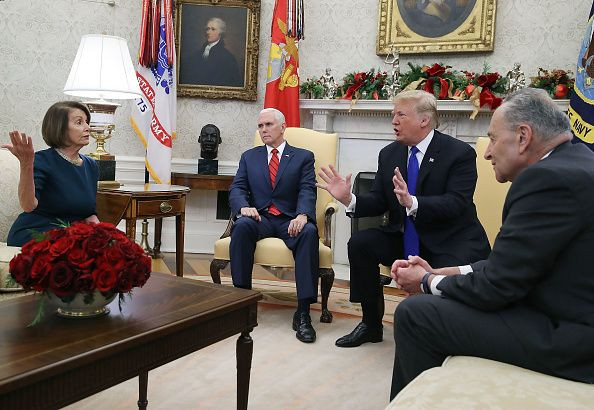House Democrats Pass Coronavirus Bill, Limits Access To Paid Sick Leave

Democrats in the House led by Majority Speaker Nancy Pelosi, D-Calif., passed a revised version of their coronavirus emergency relief bill late Monday. It differs from a similar bill passed last week by limiting those who will be able to access an extension to paid sick time off.
The previous bill would allow Americans whose ability to work has been impacted by the coronavirus crisis to earn two weeks of paid sick leave, after which they may be able to get an extension of up to 10 weeks at two-thirds wages. Businesses would be compensated for these expenses through tax credits.
The newly passed bill limits who would be considered for sick leave extensions to parents who need to care for their children whose schools and daycare facilities have been closed.
Even in the original bill, there were certain exemptions to the mandated sick leave; businesses with over 500 employees would not have to provide the off time. Because of this, millions of Americans will still need to go to their places of work in person. Even though large companies are required to provide paid sick leave, many do not necessarily cover a whole two weeks or more.
Experts have been emphasizing the need to take steps to “flatten the curve,” which refers to limiting the strain the coronavirus will have on the nation’s health care system. One of the most effective ways to do this is by ensuring people who can work from home do so or be given paid time off. In doing this, the total number of individuals exposed to the infection will be limited.
This revised coronavirus relief bill will now move on to the Republican-dominated Senate for a vote. There, it is likely to undergo certain revisions, including a possibly greater restriction on the provisions related to paid work leave.
On Tuesday, Treasury Secretary Steven Mnuchin said the White House was looking at providing money to Americans impacted by the coronavirus crisis “immediately,” though it was not clear who would qualify and how much money would be dispensed.




















